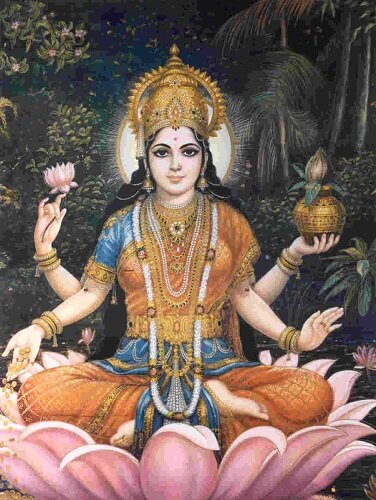What Diwali Means To Me Now
Oil lamp (Pixabay - pradippal)
Confession time – growing up, I never gave much thought, if any, to the actual meaning behind Diwali or Deepavali, as we call it in Malaysia.
As a child, I only knew it was the biggest Hindu festival, commemorating the return of Lord Rama and Sita after his exile and defeat of the demon-king, Ravana, and it was marked by prayers, lots of lit clay oil lamps and lots of yummy food.
Rama
I remember my grandmother, mum and aunts cooking and baking up a storm in the weeks leading up to the big day. At night, we also had the treat of sparklers. My dad wasn’t a big fan of setting off loud fireworks. In hindsight, I’m glad about that.
It’s only as an adult and being in the position of answering my boys’ questions as they became more aware, did I explore the meaning behind the festival. Yes, I know… embarrassing doesn’t begin to describe it!
‘Diwali’ roughly translates to ‘a row of lights’. It doesn’t have a set date, usually occurring in late October or early November, depending on when the new moon appears. Given the time of year, it may have started as a harvest festival. But, as with all important things in India, there’s always a religious meaning attached.
Rows of oil lamps (Pixabay - Bhuwan Purohit)
While most people tend to link it with the return of Lord Rama, some see it as the celebration of the marriage of Lakshmi, the goddess of wealth, to Lord Vishnu, while yet others say it signifies her birthday.
Goddess Lakshmi
I have to admit my surprise on finding out that the actual festival covers four days or five, depending on the region of India. The third day is the height of the festival, the one that’s celebrated in the way I remember it. Lakshmi puja is held (‘puja’ is to do with honouring and worshipping a deity) on this day in honour of Lakshmi and another deity, usually Ganesha, who’s the remover of obstacles and signifies new beginnings.
After I settled here in the UK and, especially after I had the boys, our Diwali celebrations have always been low-key. I don’t live in London where, like the other big cities, the celebrations are quite the big deal.
Also, I haven’t inherited my mum’s fantabulous cooking skills; I’m pretty rubbish at making any Indian sweets. So, we don’t have any of that.
Housekeeping is the one thing I can find any amount of excuses not to do, but, this year, I’m happy to say I’ve made the effort to give the house more of a clean than usual. The plan had been to do it little and slowly over the month, but I hadn’t factored in getting distracted by not-so-delightful mental demons – the kind that only pretend to leave when really, they’re hanging out in my mental basement.
There’s a part of me that would like to celebrate Diwali the way we used to when I was growing up. But a bigger part of me has become more focussed on the spiritual significance of the festival.
Does it matter that I haven’t made an effort to buy us new clothes to wear on the day?
Does it matter that I haven’t done a total clean of the house?
Does it matter that I haven’t made/bought the expected food and that I haven’t got any clay oil lamps? Not that I’d have oil lamps anyway, not with three cats!
To be honest, I’m not in the least bit bothered about it.
When I think of all the stories and myths attached to Diwali, they all focus on the victory of good over evil. Especially with all that’s happening in the world now, that’s what I want a light to be shone on – the good in the world.
I honestly believe there is more good in the world than we realise. We don’t hear about it because, unfortunately, it’s the bad news that sells. And I think those who do good are too busy ‘doing good’ instead of shouting it from the rooftops.
So, tomorrow, for Diwali, I’ll light candles (instead of oil lamps) for the good quietly triumphing over those who are too afraid to come out of the dark.
Candles in a heart-shape (Pixabay - klimkin)




